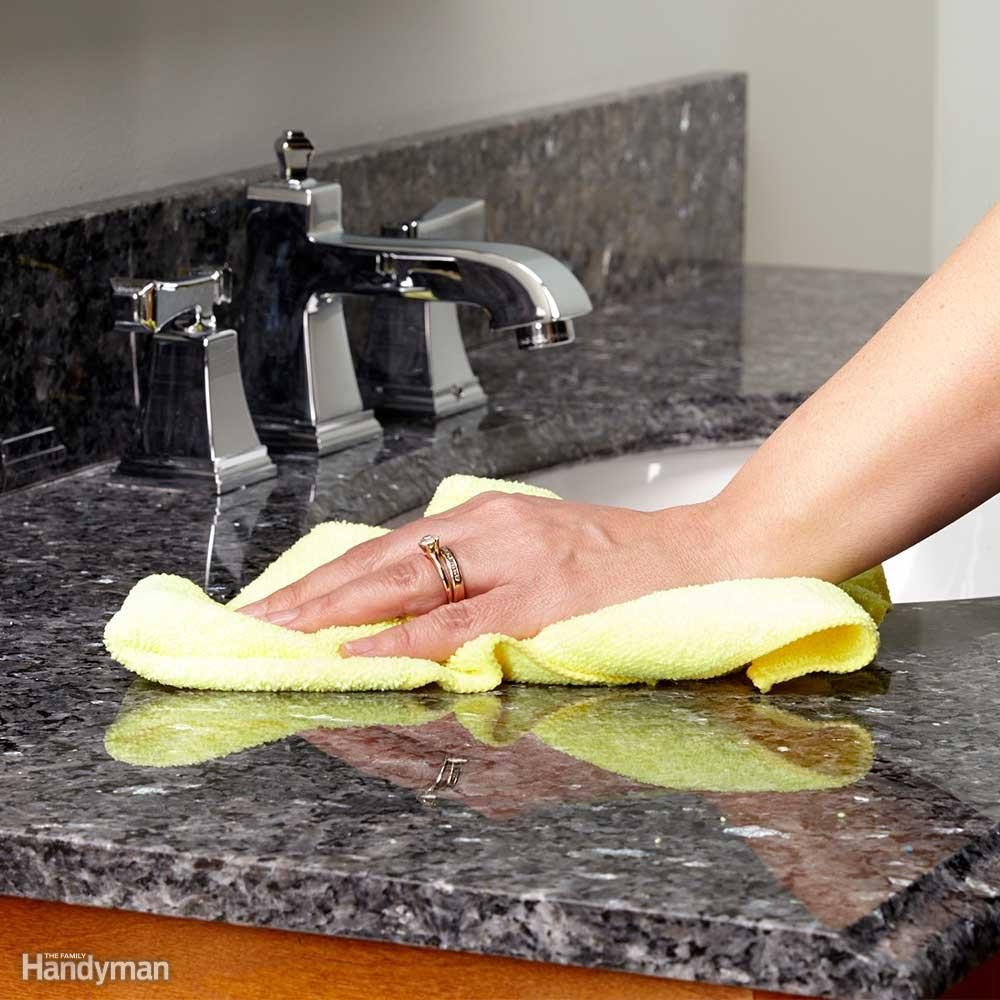
Polish with a Microfiber Cloth
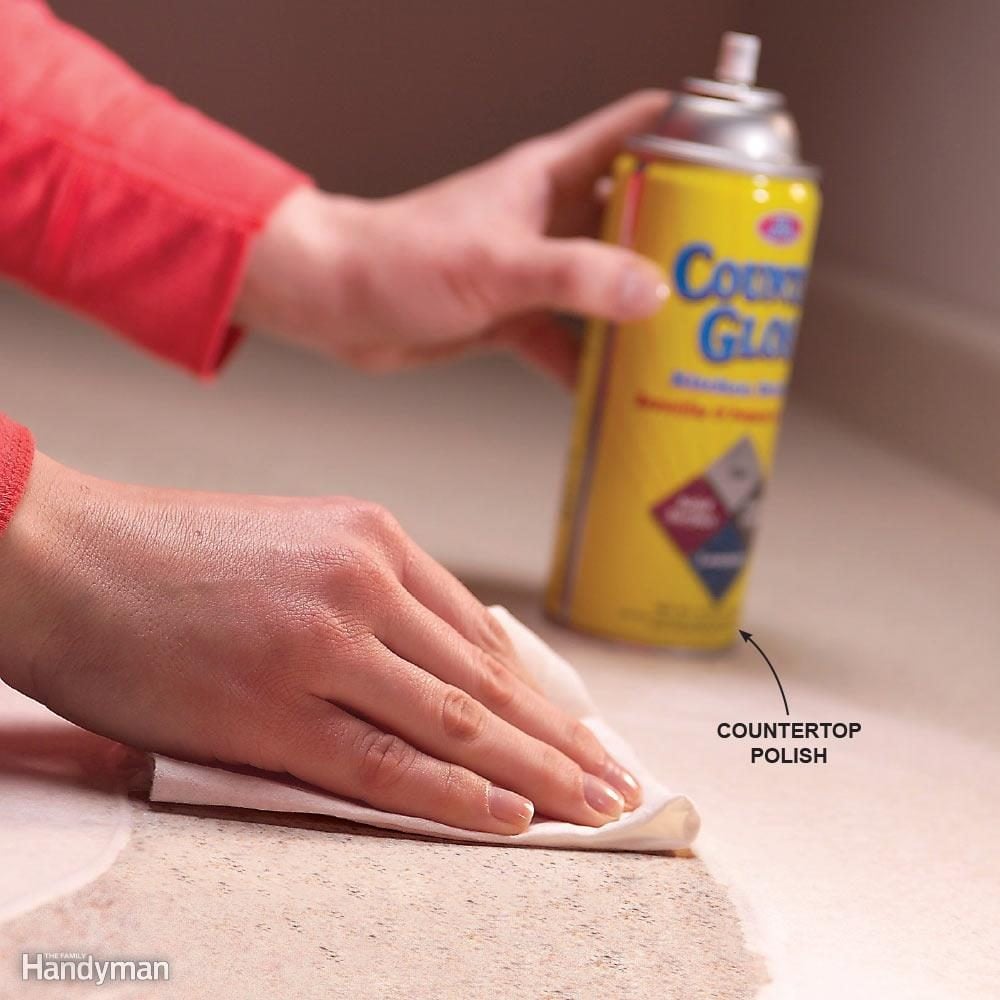
Stop Countertop Stains with a Protective Coating
If you have an older plastic laminate countertop, you've probably noticed that it doesn't repel stains like it used to. That's because years of wear have left the surface lightly scratched and porous. The best way to prevent stains is to wipe up spills immediately. But a protective coating of countertop polish can also help. Plus it will restore the shine to dull countertops. All you have to do is spray it on and wipe it off every few weeks. Most home centers and discount stores carry countertop polish such as Countertop Magic or Hope's Counter Top Polish. If you don't find it in a store, search for 'countertop polish' online to find a supplier.

Renew Wood with Mineral Spirits
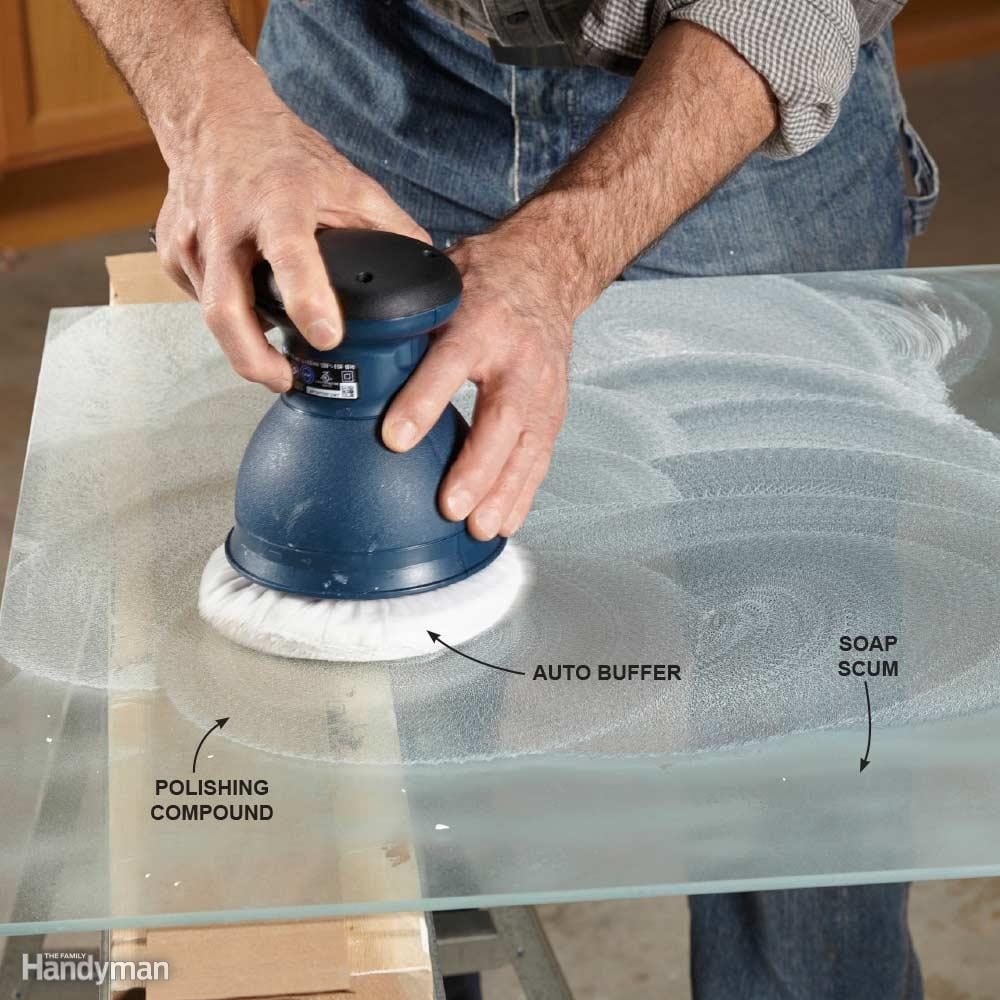
Buff Off Shower Door Scum
If you have glass shower doors in your bathroom and don't keep on top of the cleaning, you can end up with soap scum so tough that it's nearly impossible to remove. That's when you bring out the heavy equipment.
Pick up some polishing compound at a home center or auto parts store and use an auto buffer to polish off the offending scum. If you don't own a buffer, you can buy one (they're inexpensive) or borrow one from a gearhead friend. If possible, remove the doors and take them out to the garage to avoid messing up the bathroom.
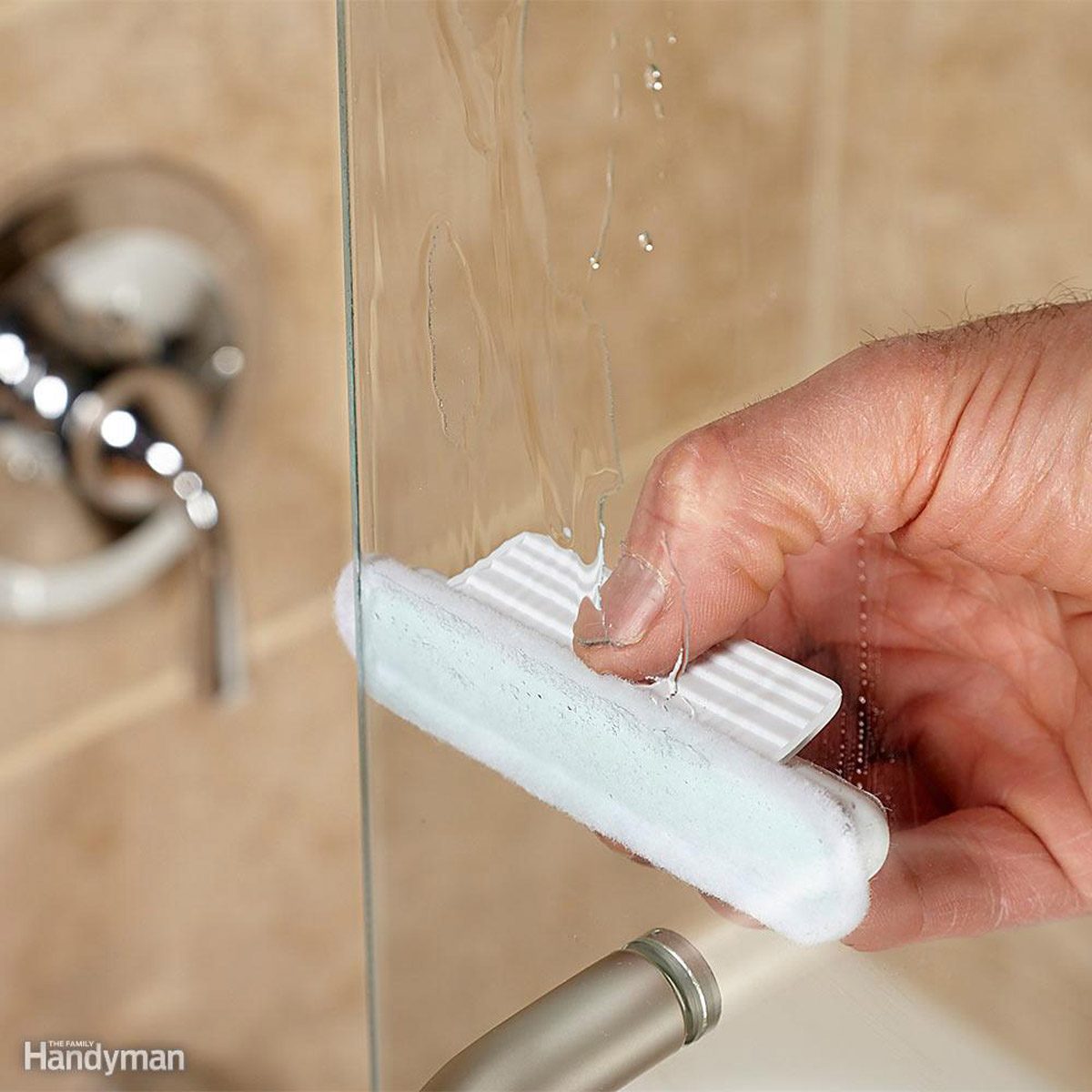
Protect Your Shower Doors from Mineral Buildup
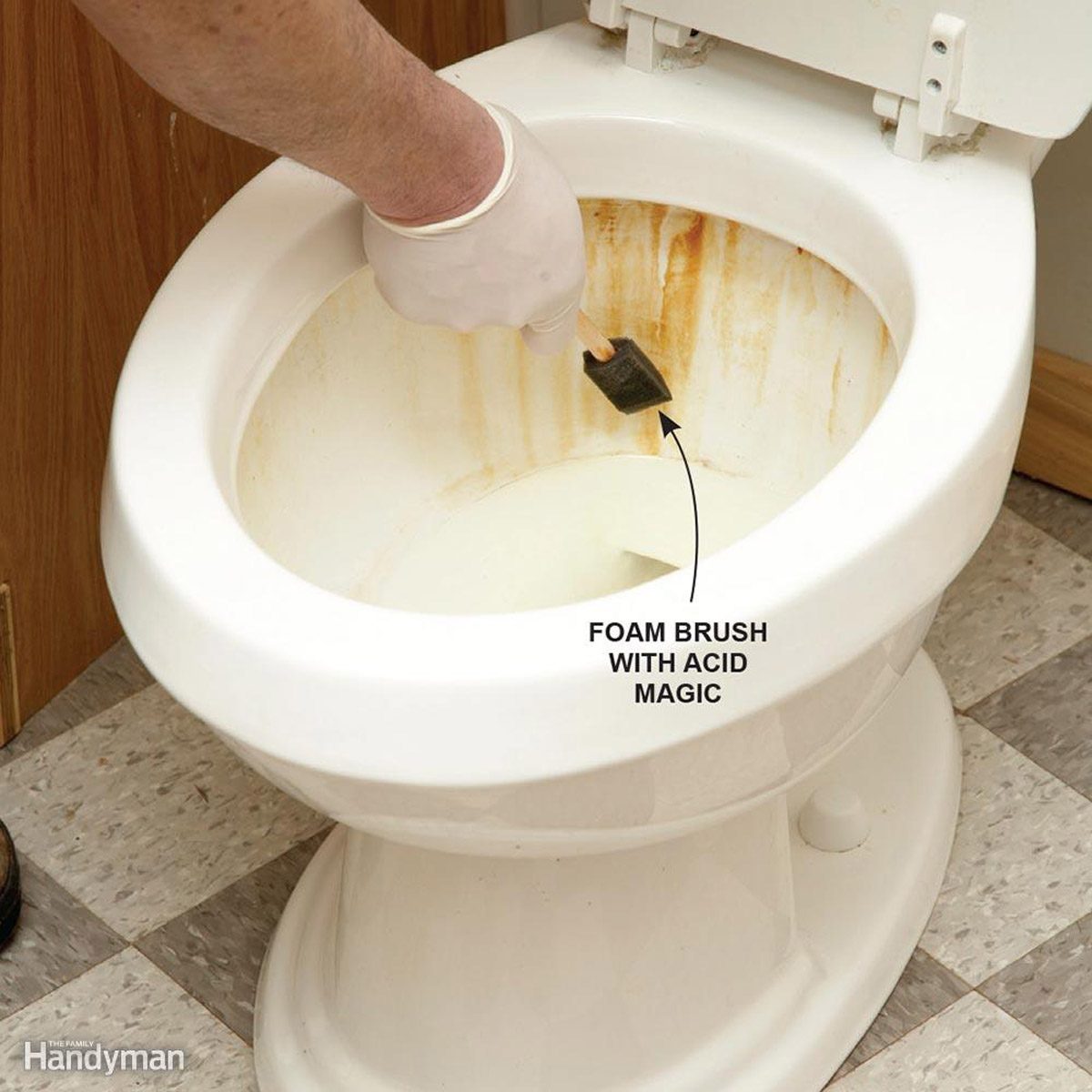
Remove Stubborn Rust Stains with Acid Magic
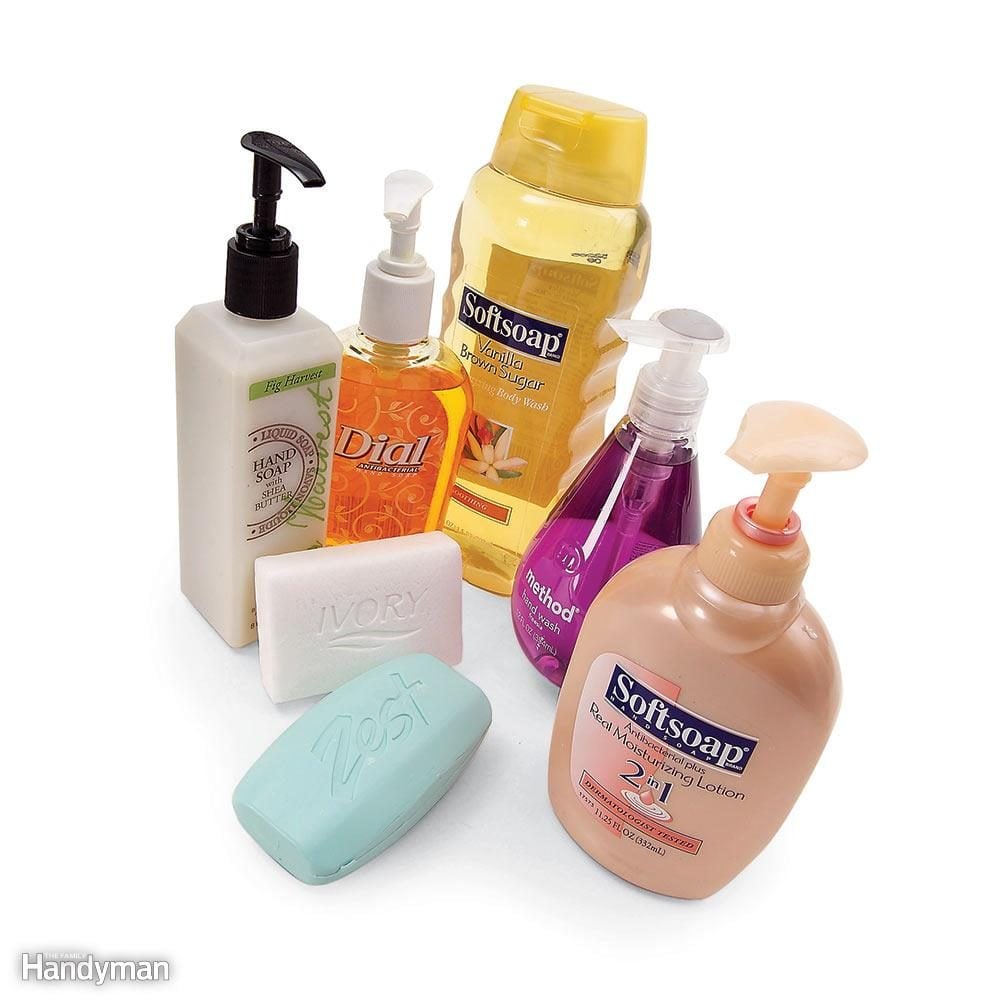
Minimize Scum with Synthetic Soap
In terms of chemistry, some soaps aren't really soap. And these 'synthetic' soaps make cleaning your shower or bathtub easier because they don't contain the ingredients that create tough soap scum. So how do you know if soap is synthetic or the real thing? Any liquid or gel soap is synthetic. Most bar soaps are true soap, but a few, such as Zest and Ivory, are synthetics. Synthetic soaps don't leave tough scum on your sink or tub the way standard soap does.
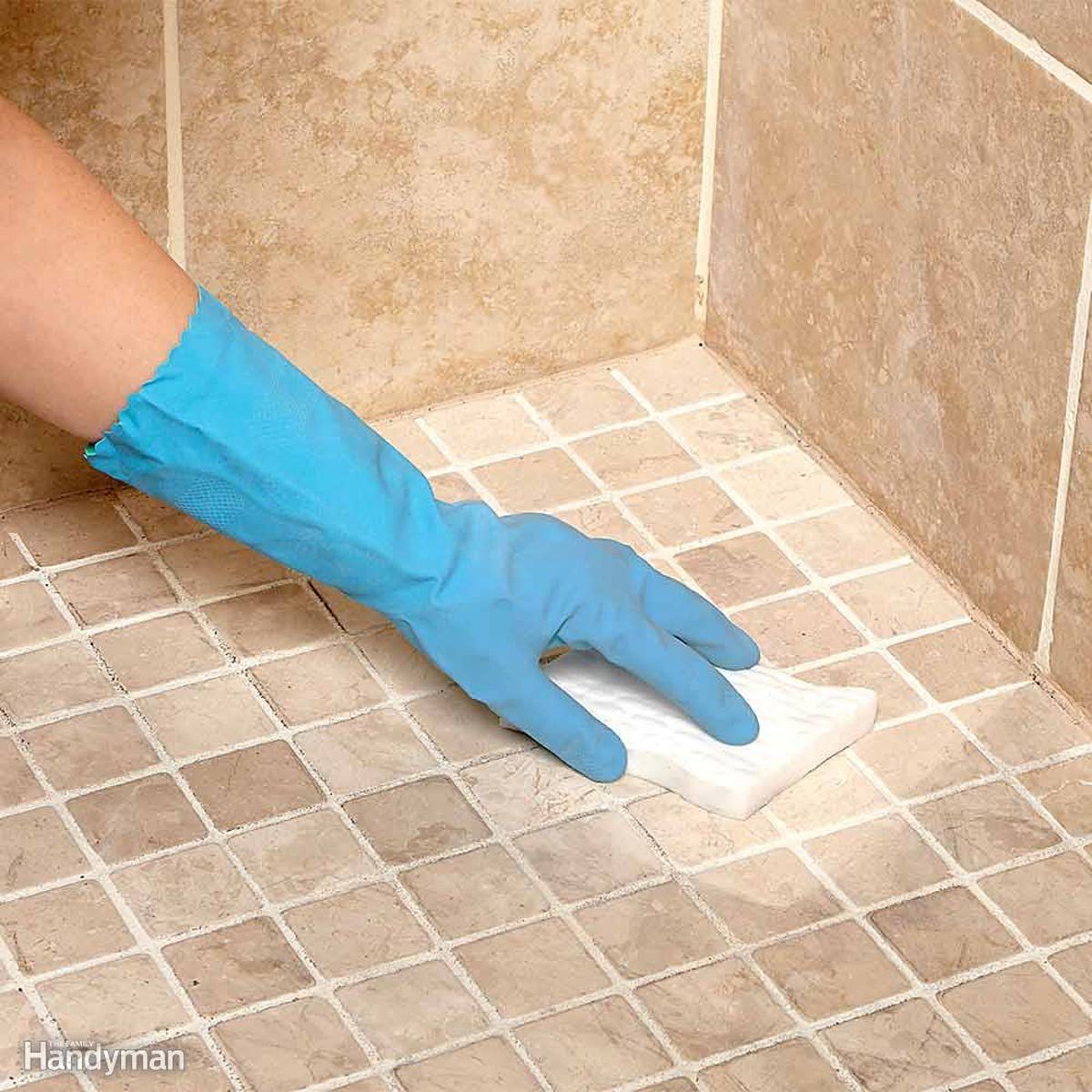
Remove Tough Grime with Less Scrubbing
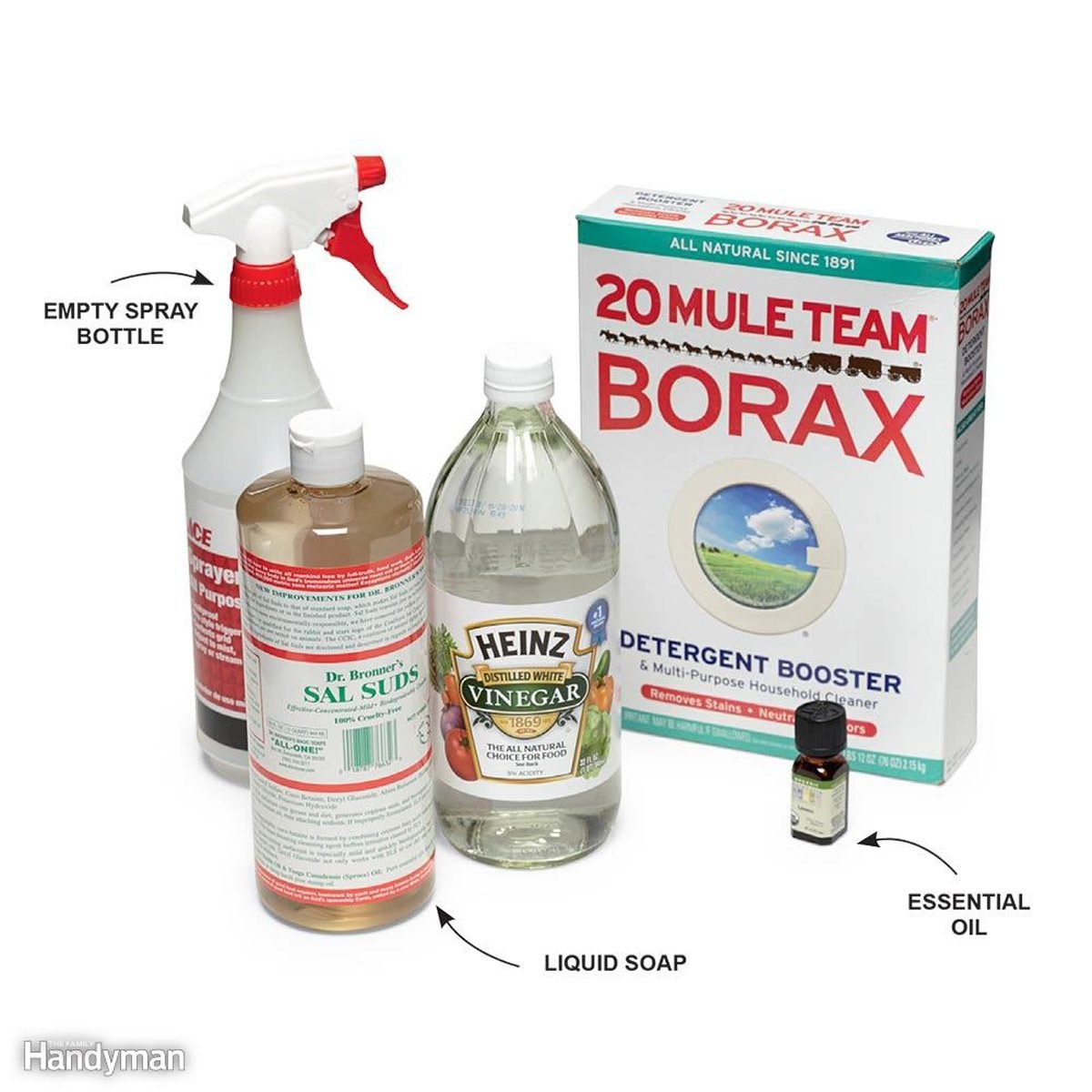
Make Your Own Greener Cleaning Solution
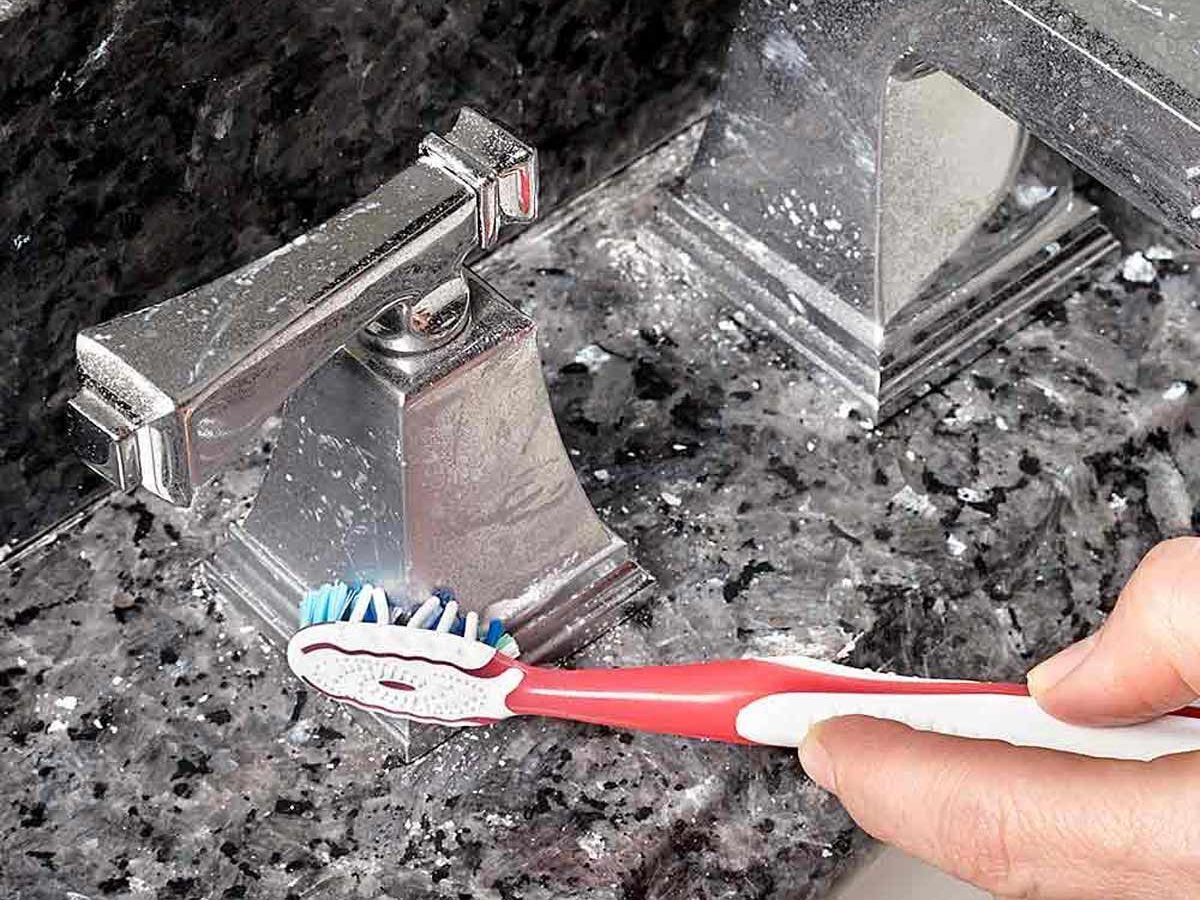
A Scrub and a Wax
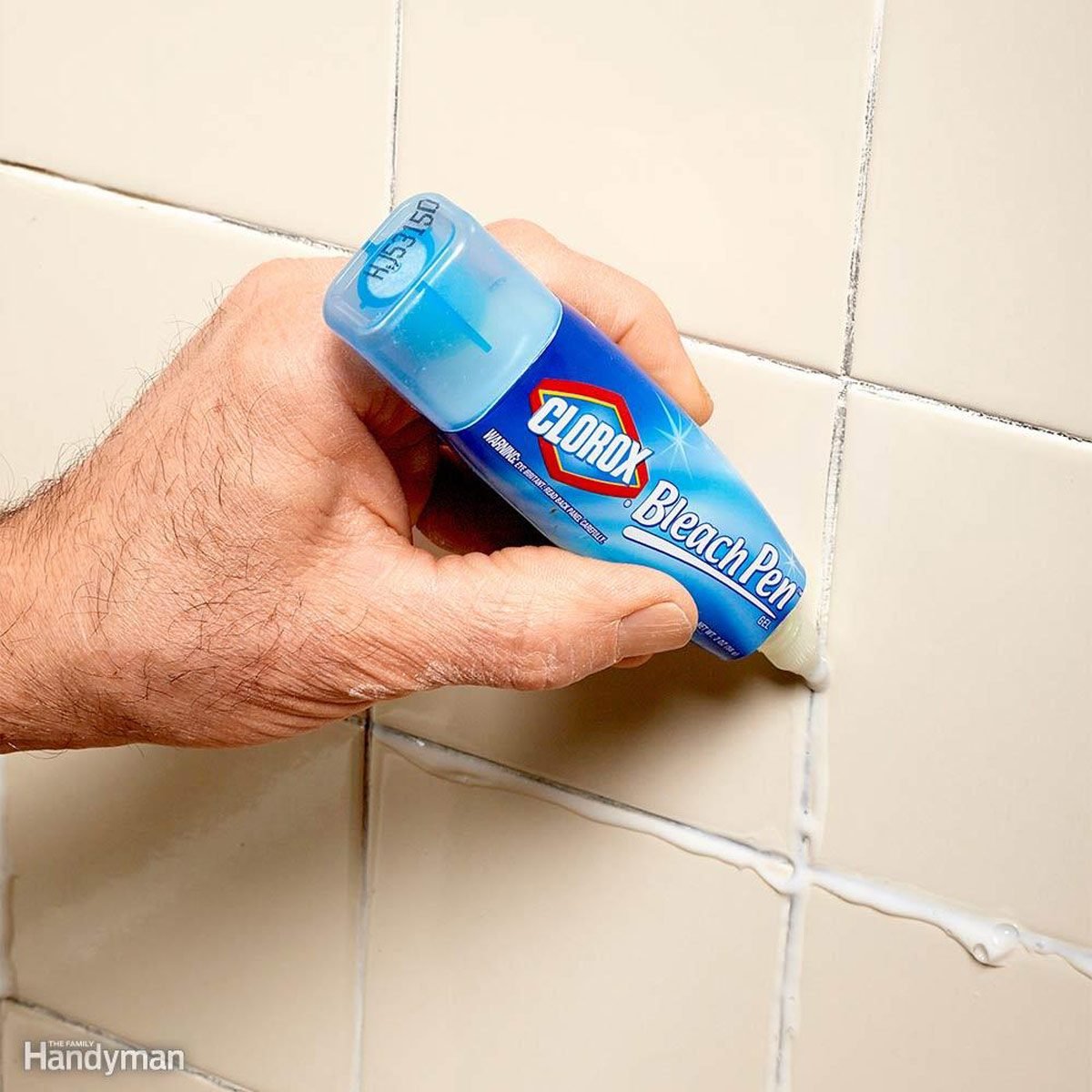
Clean Grout with a Bleach Pen
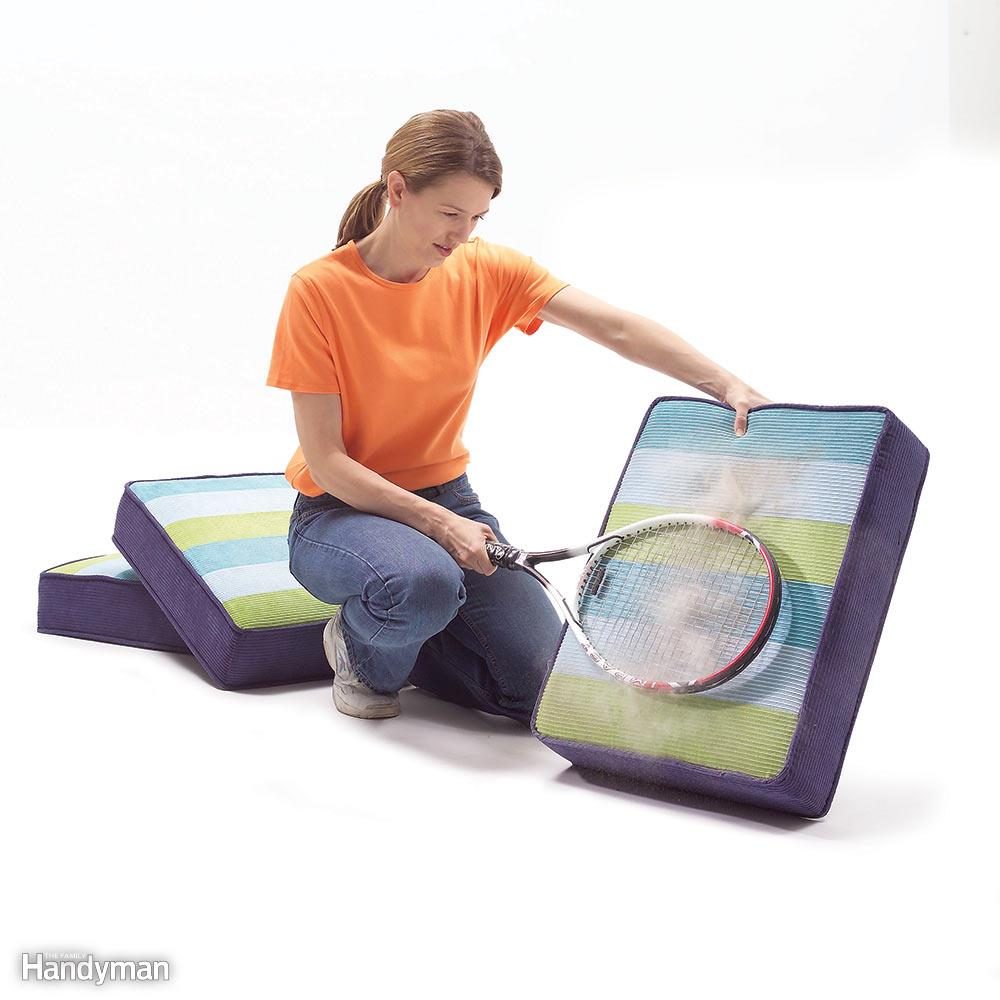
Beat The Dust out of Cushions With a Tennis Racket

Scour Off Grime with an Electric Toothbrush
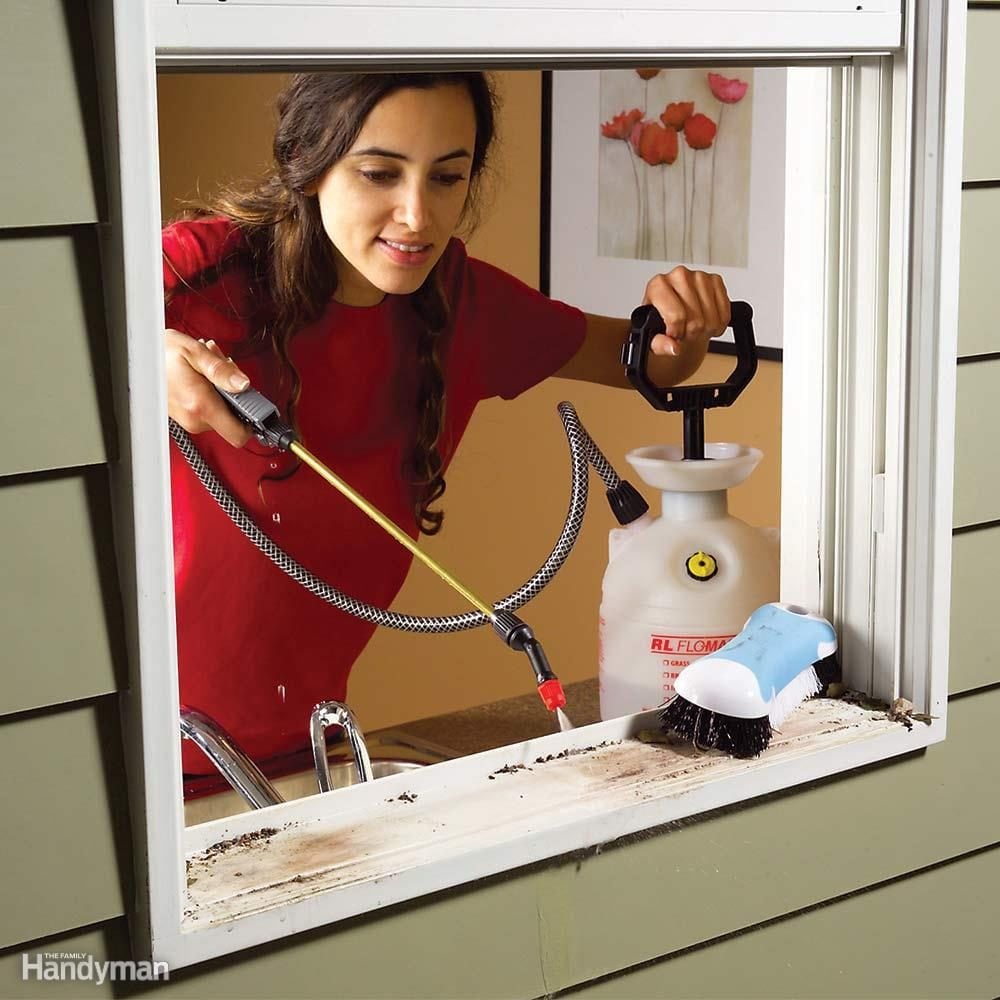
Mini Power Washer
A garden sprayer can be a mini power washer for cleaning windowsills and other hard-to-reach spots. Before you fill the tank with water, be sure to rinse it repeatedly to flush out any chemical residue.
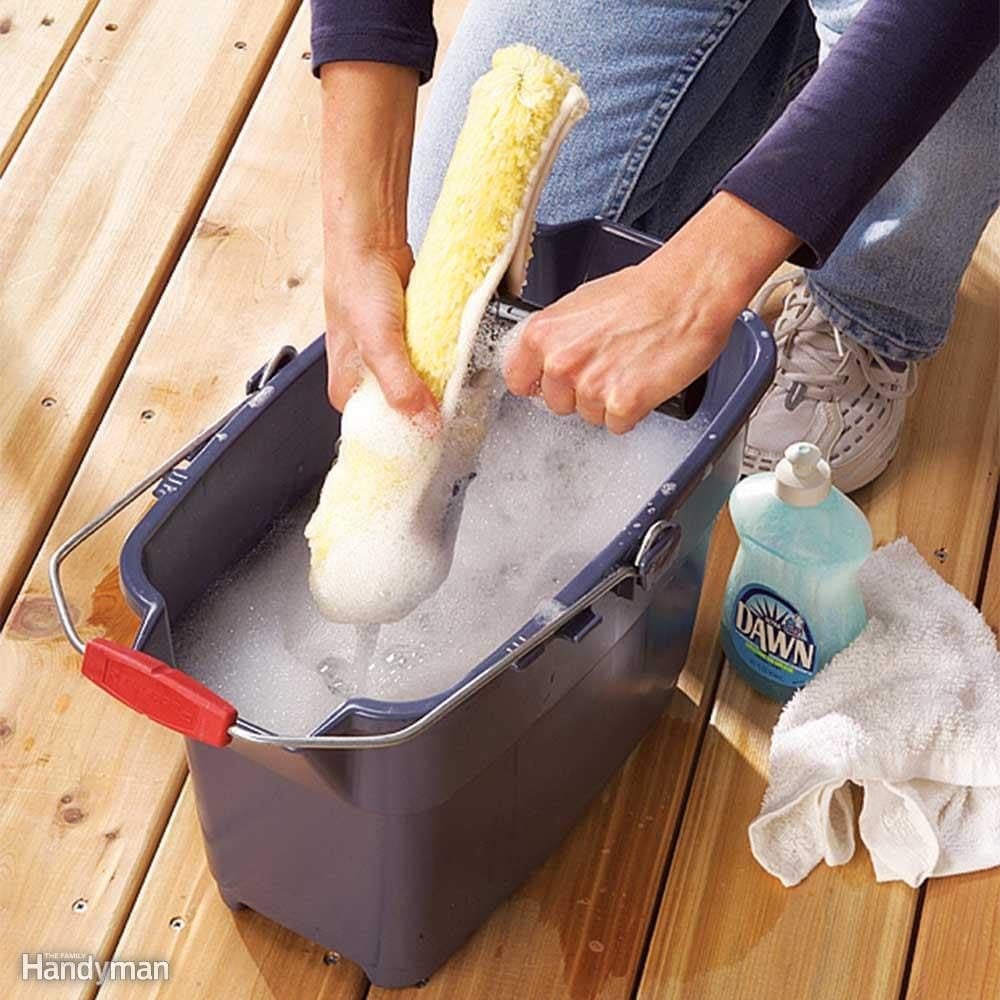
Mix Your Own Window Cleaner
You know, most professional window washers don't buy window cleaner. They mix a teaspoon of dishwashing liquid with a few gallons of water. That's it. You can just pour it in a spray bottle for in-house work. For outside windows, get yourself a sponge/squeegee combination window cleaner and dip it right in the bucket.
See how pros get windows squeaky clean fast.
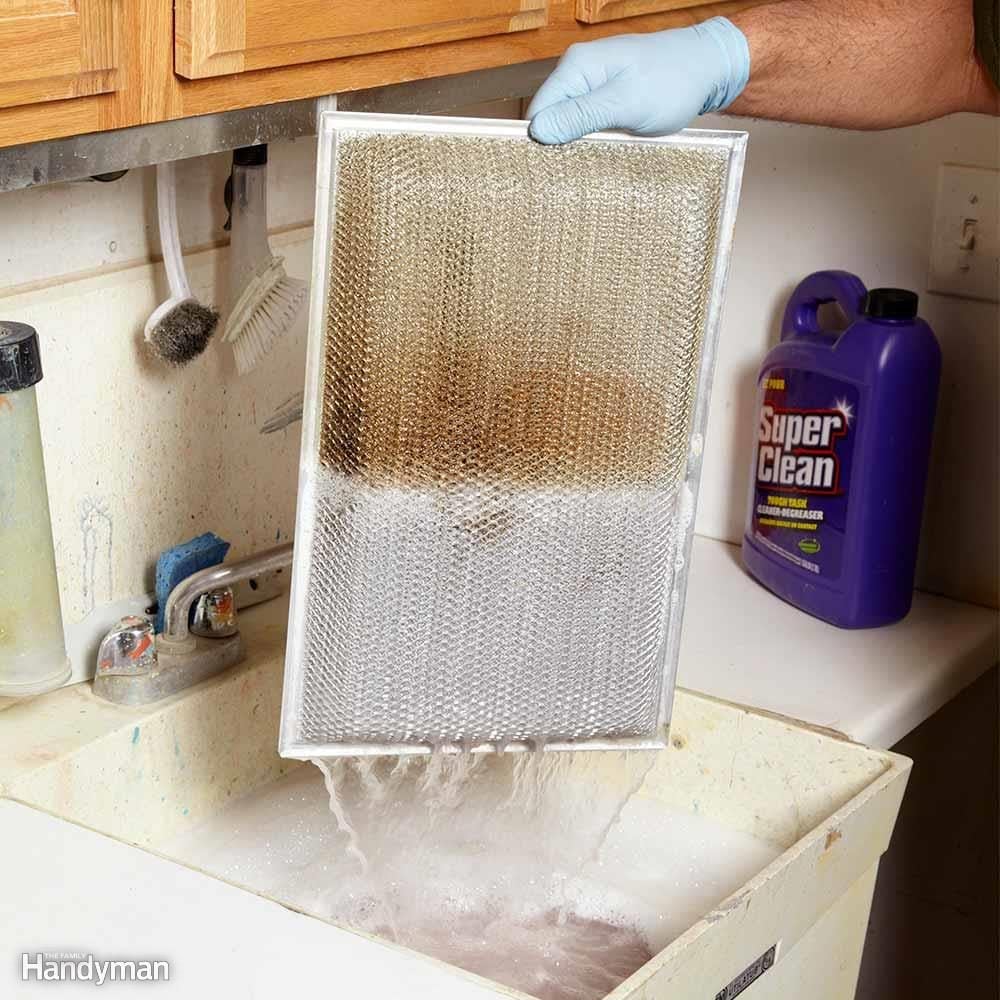
Clean Range Hood Grease Filters With a Degreaser
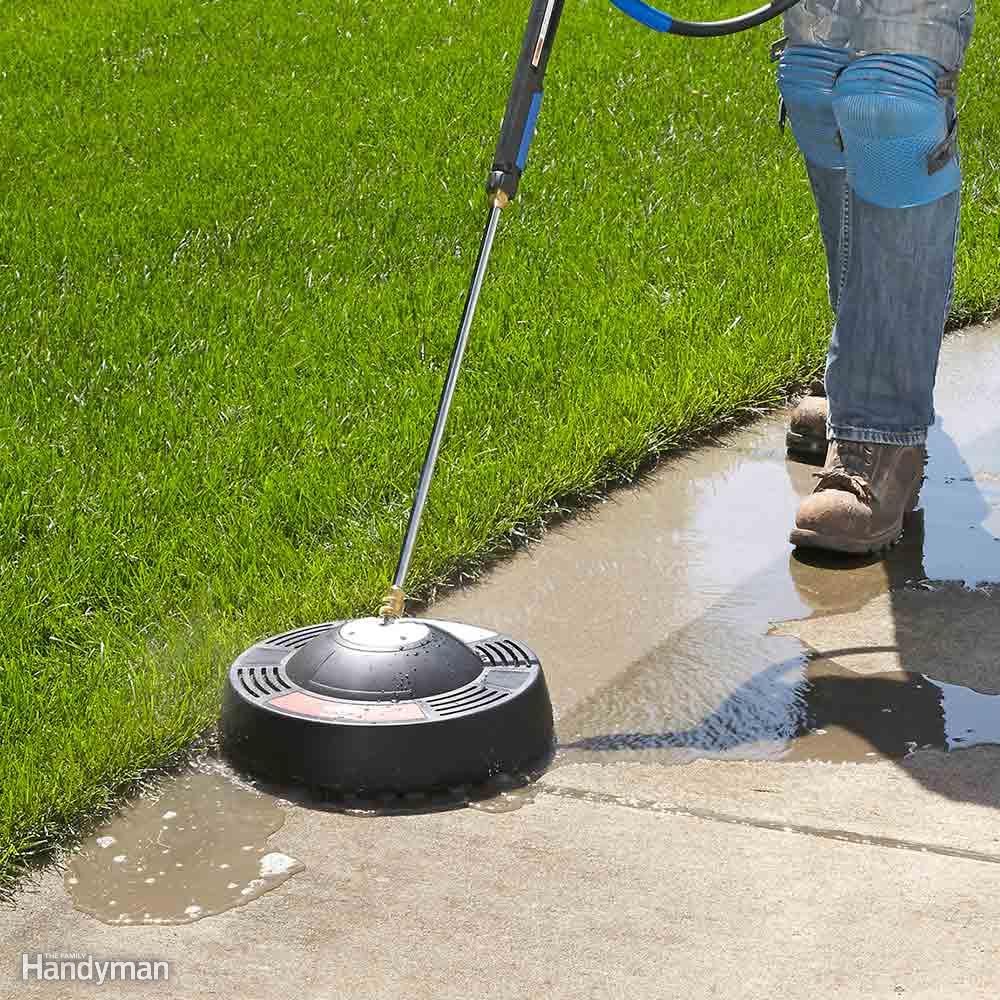
Pressure Washer Wonder
Any pressure washer can clean a hard surface like concrete, but it takes forever, and if you move the nozzle too fast or too slow, you wind up with streaks and striping. However, that is not the case with this whirlybird-style surface cleaner from Briggs & Stratton (No. 6178). Snap it onto the end of your pressure washer and put it to work cleaning dirty concrete.
As soon as you pull the trigger, the cleaner lifts off the surface and floats like a hovercraft. Just push it along at a steady pace and let it do its job. The spinning jets blast a clean, uniform 14-in.-wide swath, and the brush skirt prevents damage to the grass edging, flower beds and walls. You can clean an entire walk and patio in less than half the time it takes with a regular pressure washer nozzle. And you'll get much better results.
Use the surface cleaner on horizontal and vertical surfaces like concrete, brick, stone and pavers. However, if you wish to use it on asphalt, wooden decks, fences or siding, you'll have to test it first. It's very aggressive and can damage softer surfaces like these.